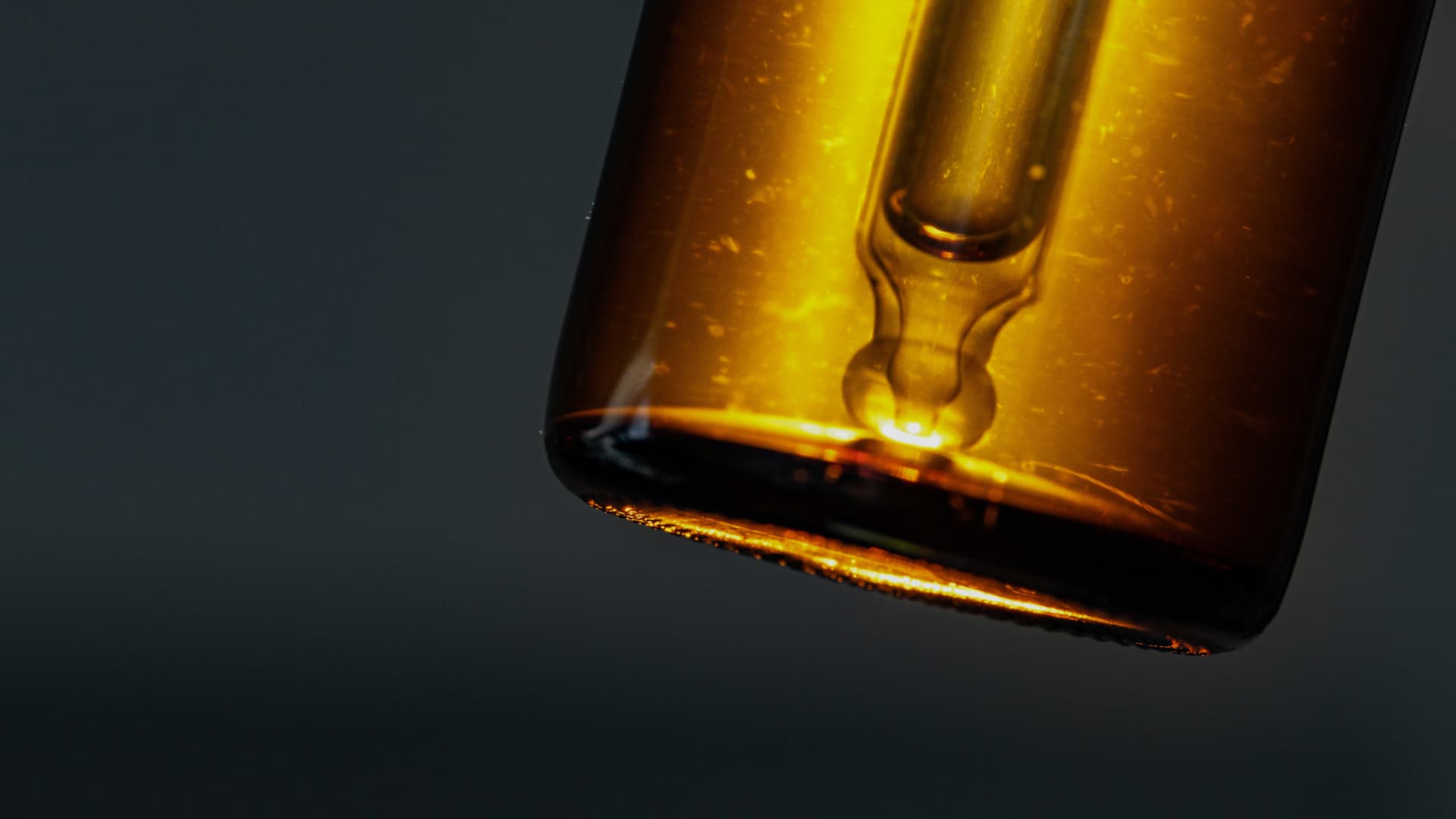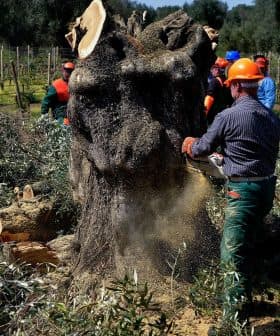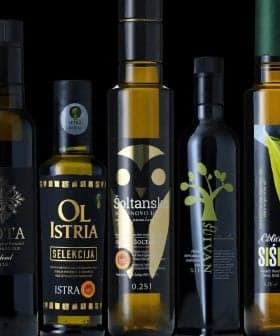 35.9K reads
35.9K readsHealth
Extra Virgin Olive Oil Extract Exceeds Ibuprofen's Anti-Inflammatory Properties

Researchers have developed a new method to extract oleocanthal and oleacein from olive oil, which could be more effective than Ibuprofen in reducing inflammation. The new water-based process eliminates the need for expensive chemicals and produces highly concentrated extracts that could have broad-reaching health benefits beyond anti-inflammatory properties.
Researchers from the University of Teramo and Sapienza University in Rome developed a new method to sustainably extract oleocanthal and oleacein from extra virgin olive oil, obtaining a highly concentrated solution.
These extracts could provide more effective anti-inflammatory results than well-known drugs such as Ibuprofen. While phenol extraction has been typically expensive, the new extracts can be produced at a fraction of the cost.
Oleocanthal, oleacein and the new molecules demonstrated significantly stronger activity than Ibuprofen as cyclooxygenase inhibitors.
One reason phenol extraction is so costly is the required chemicals. The new process eliminates the need for these chemicals, relying entirely on water as a solvent.
See Also:Health NewsAdditionally, this water-based process produces no chemical waste and does not affect the edibility of the processed olive oil.
“We have developed a water-based, eco-friendly and biocompatible methodology,” said Antonio Francioso, co-author of the study and researcher at the University of Teramo’s Bioscience and Technology for Food, Agriculture and Environment Department.
“Oleocanthal and oleacein are natural, edible products formed during olive oil production. They are derived from plant precursors, ligstroside and oleuropein,” he added. “They are especially notable for their anti-inflammatory and antioxidant effects.”
The researchers developed a method to synthesize two oleocanthal and oleacein derivatives, thiocanthal and thiocanthol.
They also explored how oleocanthal, oleacin and their new derivatives could inhibit cyclooxygenase activity. Cyclooxygenase inhibitors, like Ibuprofen, are commonly used to reduce inflammation.
“We confirmed existing data by using Ibuprofen as the gold standard in our tests,” said Luciana Mosca, co-author of the study and researcher at Sapienza University’s biochemical sciences department.
“Oleocanthal, oleacein and the new molecules demonstrated significantly stronger activity than Ibuprofen as cyclooxygenase inhibitors,” she added.
The new molecules differ from oleocanthal and oleacein due to a process known as sulfonation, which could potentially make them far more effective for medical applications.
“Oleocanthal and oleacin, though well-studied, have shown great activity in vitro and in cellular systems,” Mosca said. “However, they face a significant pharmacokinetic issue: they are unstable molecules.”
When oleocanthal and oleacein are ingested, they degrade rapidly as the body identifies the compounds as potentially harmful and employs various biological systems, including enzymes, to break them down.
“The extreme reactivity of these molecules is due to their chemical structure. By using this sulfonation reaction, we can make them much less reactive,” Mosca said. “That’s why we believe that in vivo, these molecules could demonstrate greater pharmacological activity.”
“However, this still needs to be confirmed from a scientific perspective,” she added. “We have early evidence, and we’re continuing to conduct tests. There’s more to come in the next chapter.”
See Also:New Process Increases Sustainability, Phenolic Profile of Olive Leaf ExtractsAlthough dozens of phenols are present in extra virgin olive oils, not all extra virgin olive oil contains the same amount and proportion of these compounds. Interestingly, these differences impact the production process of the new extracts.
“It’s important to select cultivars that produce olive oils particularly rich in these two polyphenols, as not all cultivars can yield high amounts of oleocanthal and oleacein in the oil,” said Roberto Mattioli, co-author of the study and researcher at Sapienza University’s biochemical sciences department.
For this reason, the researchers focused their initial study on Coratina, an Apulian cultivar known for producing extra virgin olive oil in which 70 to 80 percent of the phenols are oleocanthal and oleacein.
“Even with such rich cultivars, traditional extraction methods rely on lengthy processes involving organic solvents, which must be removed afterward, posing risks to both the environment and workers,” Mattioli said.
Mattioli and his colleagues said they had developed a method using biocompatible molecules instead of organic solvents to obtain highly concentrated extracts, reaching about 50 milligrams of polyphenols per milliliter.
“These molecules can be safely ingested, potentially administered directly to animals, or used in vitro on tissues or cells in culture because they are entirely biocompatible,” he said. “With such high concentrations, the substances can be appropriately diluted in various culture media and administered directly, without further purification steps or solvent evaporation.”
“Currently, five milligrams of oleocanthal can cost €250, making it unsustainable for large-scale production,” Francioso added.
According to the researchers, the new process might turn the tables.
“Starting with particularly rich oils, we use an extremely economical method… to concentrate polyphenols by a factor of 100 in a biological and lipid solvent,” said Rodolfo Federico, co-author of the study and co-founder of the startup Active-Italia.
“For the first time, we have raw materials that can be used as health-promoting agents. Until now, no supplements containing oleocanthal and oleacein have existed,” he added, “only their precursors.”
He believes extracts of these two molecules will have far-reaching benefits beyond the proven anti-inflammatory properties attributed to their cyclooxygenase-inhibiting behavior.
“In vivo evidence from clinical studies in patients shows that olive oil with high oleocanthal and oleacein content inhibits the synthesis of pro-inflammatory cytokines,” he said. “The mechanism of action could be much broader, potentially addressing multiple pathologies. It’s truly quite fascinating.”
Hundreds of studies have linked consuming extra virgin olive oil to various health benefits.
Know the Basics
Things to know about olive oil, from the Olive Oil Times Education Lab.
Extra virgin olive oil (EVOO) is simply juice extracted from olives without any industrial processing or additives. It must be bitter, fruity and pungent — and free of defects.
There are hundreds of olive varieties used to make oils with unique sensory profiles, just as many varieties of grapes are used in wines. An EVOO can be made with just one variety (monovarietal) or several (blend).
Extra virgin olive oil contains healthy phenolic compounds. Substituting a mere two tablespoons of EVOO per day instead of less healthy fats has been shown to improve health.
Producing high-quality extra virgin olive oil is an exceptionally difficult and costly task. Harvesting olives earlier retains more nutrients and extends shelf life, but the yield is far less than that of fully ripe olives that have lost much of their healthy compounds.









